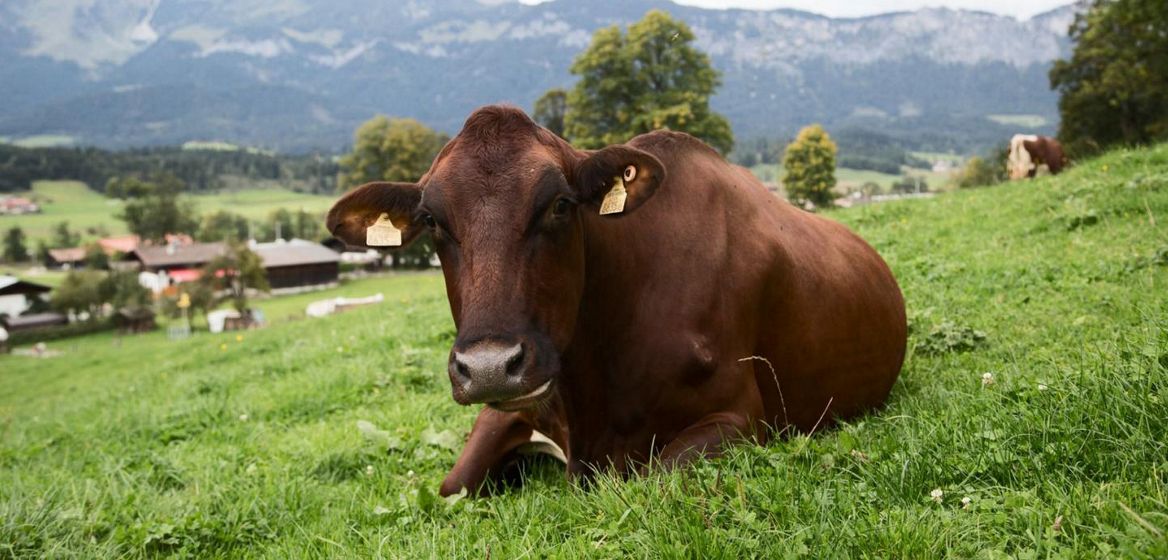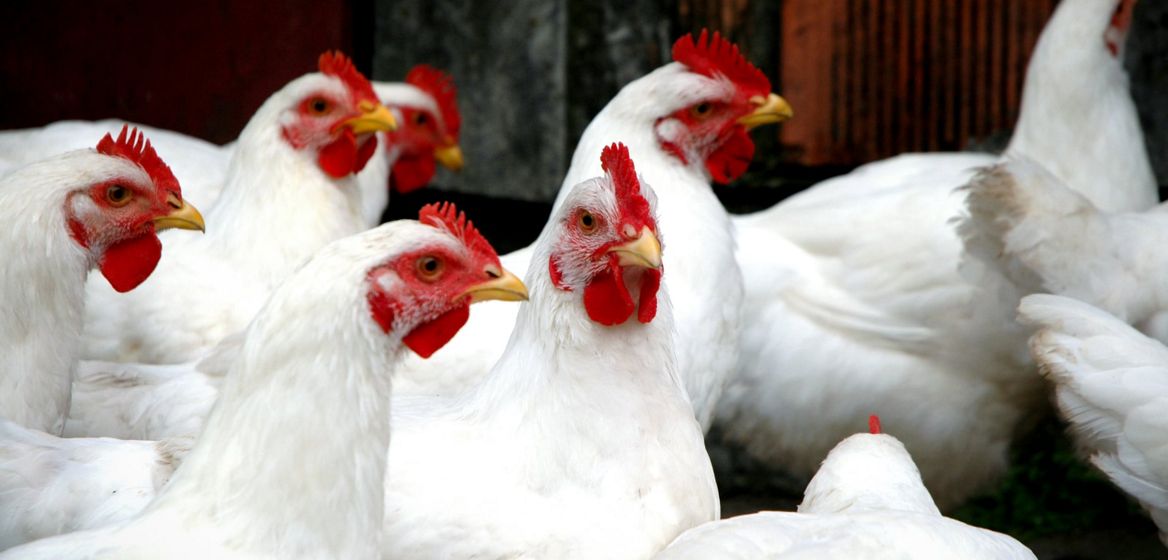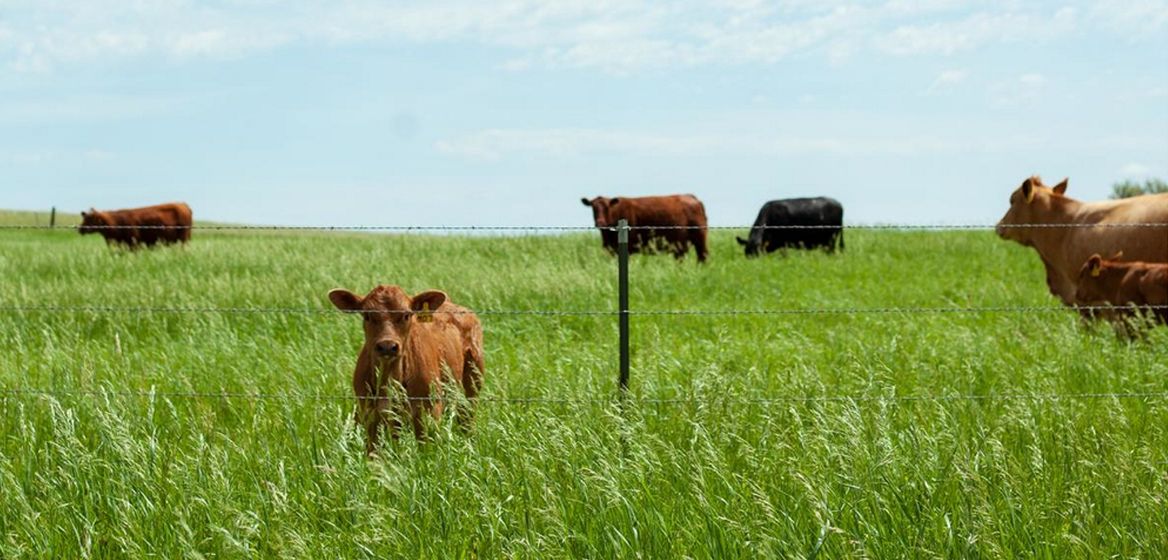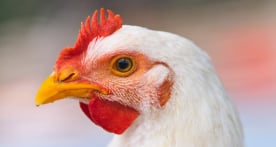Animal Health & Welfare
We believe we have a responsibility to help improve the health and welfare of animals in our supply chain.
This is why the Company prioritizes animal health and welfare and responsible antibiotic use. We ask our suppliers to raise animals in a humane manner, in accordance with applicable laws and with integrity.
On this page, you'll find information about our approach to this topic and links to related topics. For our progress and performance relating to animal health and welfare, see the Goal Performance & Reporting page where you'll find our latest Purpose & Impact Report.
Our Strategy
We believe we have a responsibility to help improve the health and welfare of animals in our supply chain, and we work with our global network of suppliers to actively encourage industry and cross-sector collaboration on this topic. To help us achieve a positive impact in this area, we engage with recognized subject-matter experts and academia. Using an approach that considers everything from key welfare indicators to humane slaughter, we aim to leverage scale to help drive positive outcomes.
In particular, our approach focuses on the Five Domains of animal welfare: nutrition, physical environment, health, behavior and mental state.
Supply Chain Requirements
The Company has various programs and systems that outline animal health and welfare requirements for suppliers. For example:
- The Global Raw Material Sponsorship Program defines the Company’s annual food safety, animal health and welfare, and supplier workplace accountability requirements for raw material suppliers of beef, chicken and pork.
- The Global Sustainable Sourcing Guide outlines category-specific sustainability requirements, which are also embedded in product specifications.
- The Company’s global and market Quality Systems teams periodically contact suppliers to review their performance against the Company’s policies and to help ensure consistent implementation and continuous improvement.
- McDonald’s animal health and welfare standards are defined for each protein and verified through recurring independent audits of slaughterhouses. Where these audits find noncompliance, we take appropriate steps, including confirming corrective action plans have been implemented, or suspending the relationship.
Standards to Help Promote Humane Slaughter of Beef, Chicken & Pork
The Company requires that, for raw material suppliers of beef, chicken and pork, slaughterhouses follow a practice of humanely stunning animals prior to slaughter (except to the extent prohibited for religious reasons). We believe stunning animals ensures insensibility before slaughter; it is a critical animal welfare measure that we audit against to help confirm it is being followed. We ask our suppliers to follow religious slaughter requirements, including halal and kosher, when required.
Focus on Beef & Dairy
McDonald’s is a founding member of the Global Roundtable for Sustainable Beef (GRSB) and strongly supports its initiatives to achieve progress across several areas, including animal health and welfare. See our Responsible Sourcing page for examples of how we’re applying these core principles. For details of how we’re advocating for responsible antibiotic use in the beef industry, see our Responsible Antibiotic Use page.
U.S. Dairy Suppliers
The Company conducts an annual certificate of compliance process to confirm U.S. dairy suppliers, and the farms they source from, participate in the Farmers Assuring Responsible Management (FARM) Animal Care Program.
Focus on Chicken
We formed the Chicken Sustainability Advisory Council (CSAC) in 2018 to help inform our chicken welfare and sustainability strategy. The group includes animal welfare experts, chicken suppliers, academics and researchers, as well as nongovernmental organizations (NGOs).
McDonald’s is a founding member of the International Poultry Welfare Alliance (IPWA) and the U.S. Roundtable for Sustainable Poultry & Eggs. Additionally, in 2023, we endorsed a set of antimicrobial use stewardship principles established by the International Poultry Council (IPC) as part of the U.S. Agency for International Development (USAID)-funded Transformational Strategies for Farm Output Risk Mitigation (TRANSFORM) project. By endorsing these principles, we commit to encouraging or taking action against four key points:
- Take a risk-based approach around each instance of antimicrobial use and consider why, when, which and how much to administer.
- Adopt farm management practices that improve animal health and would reduce the need for antimicrobial use.
- Use antimicrobials only in compliance with national authorizations.
- Only use antimicrobials critically important for human medicine under a supervising veterinarian’s diagnosis and oversight.
For details of our global chicken antibiotics efforts, see our Responsible Antibiotic Use page.
Sourcing Broiler Chickens Raised With Improved Welfare Outcomes
McDonald’s takes an outcome-based, holistic approach to chicken sustainability – one that prioritizes animal health and welfare while balancing additional considerations such as environmental impacts.
In 2017, McDonald’s announced a global commitment to source chickens raised with improved welfare outcomes. We outlined eight Broiler Welfare Commitments in 13 of our key markets.1 All eight commitments were achieved in 2024, and you can read more about the commitments and achievements in our 2024–2025 Purpose & Impact Report.
Focus on Eggs
In the U.S.
In 2015, McDonald’s USA made a commitment to sourcing 100% cage-free eggs by the end of 2025. McDonald’s engaged animal welfare experts and academics to help egg producers build and renovate their farms and implement new technology to help us promote a cage-free egg supply.
Through years of partnership with, and support from, our suppliers, we were able to drive the significant industry change necessary to meet our target in 2023 – two years ahead of schedule.
Across the Globe
We have also worked to source cage-free eggs in other markets across the globe, as have our Franchisees. The Canadian market has achieved a goal of sourcing 100% cage-free2 eggs for McMuffin®, McGriddles® and Bagel sandwiches as of 2024. Examples of markets that continued to source 100% cage-free egg supply chains in 2024 include Australia, France and Germany. Additionally, our DL, Arcos Dorados, has set a commitment to source cage-free eggs by 2025.
Focus on Pork
As of the end of 2024, we achieved our goal of phasing out the use of gestation stalls for confirmed pregnant sows in McDonald’s U.S. pork supply. This achievement underscores our journey to maximize the duration confirmed pregnant sows are housed in group environments. Our commitment is guided by the industry and the American Association of Swine Veterinarians (AASV)-endorsed definition of group housing for pregnant sows.
You can read about our progress in our latest Purpose & Impact Report.
For details of our efforts to drive responsible antibiotic use in pork supply chains, see our Responsible Antibiotic Use page.
Footnotes
1 Broiler welfare: These commitments apply to chickens raised for sale at McDonald’s restaurants in Australia, Canada, France, Germany, Italy, Ireland, the Netherlands, Poland, South Korea, Spain, Switzerland, the U.K. and the U.S. Russia has been removed from the scope of this goal based on our 2022 exit from this market.
Latest Stories






